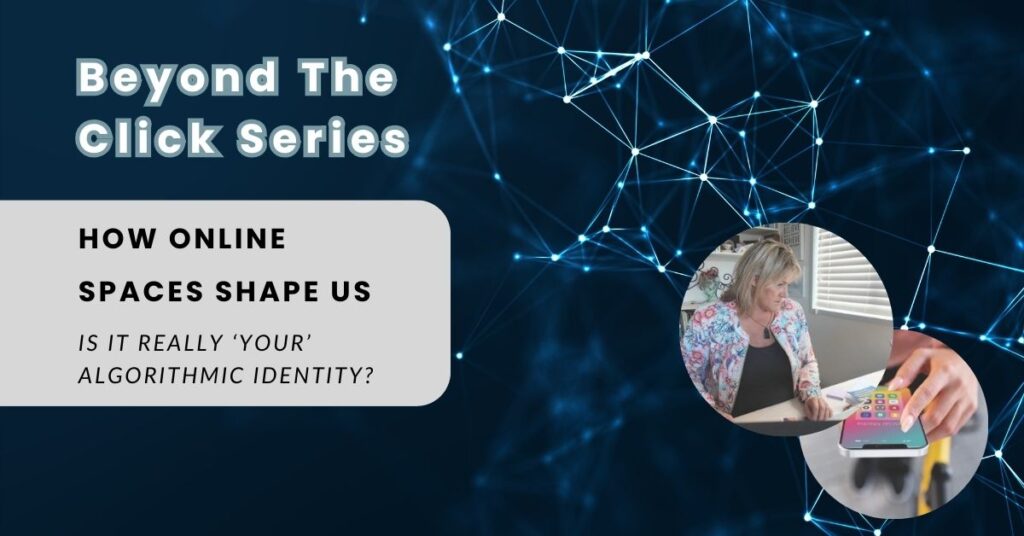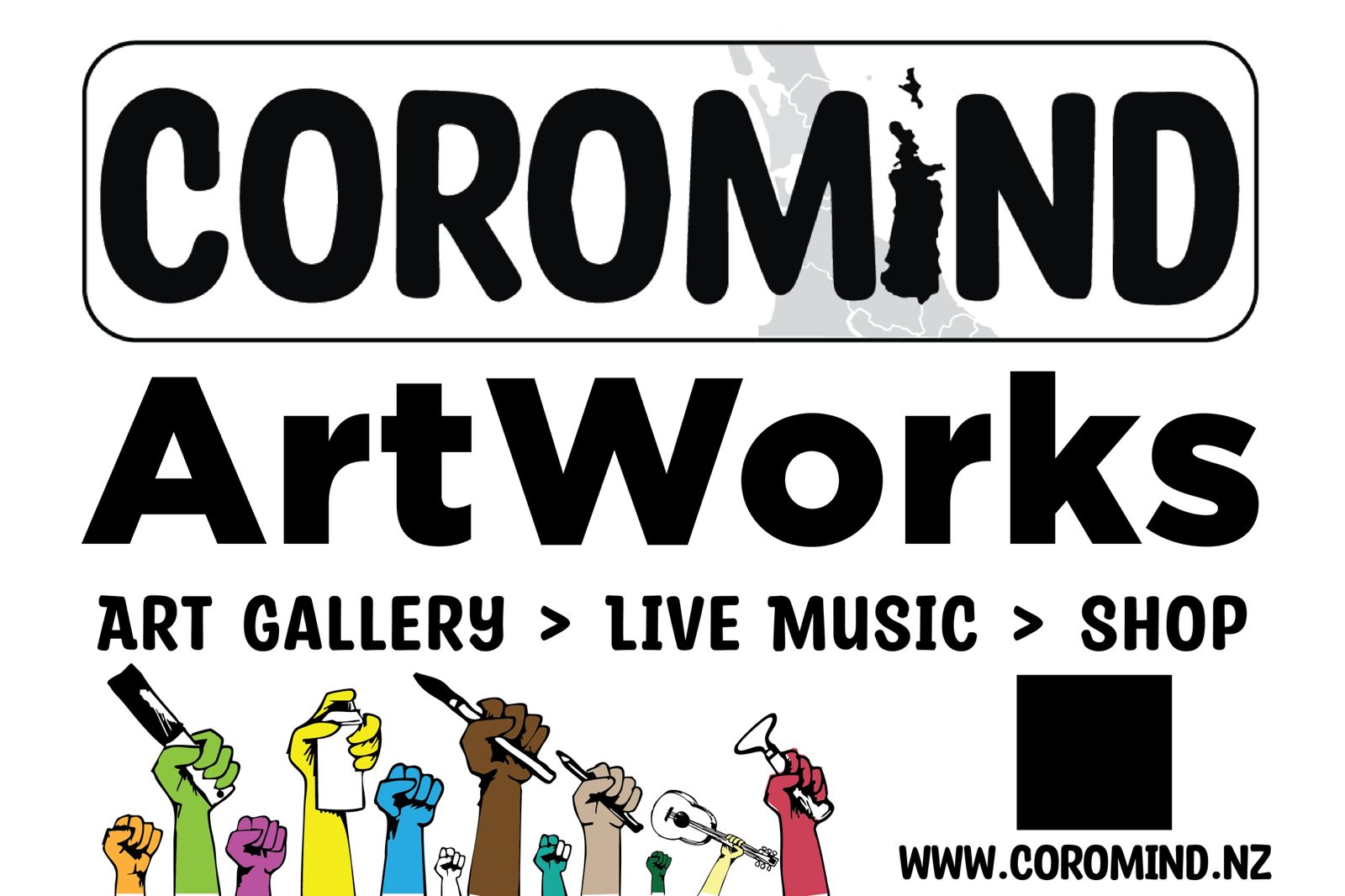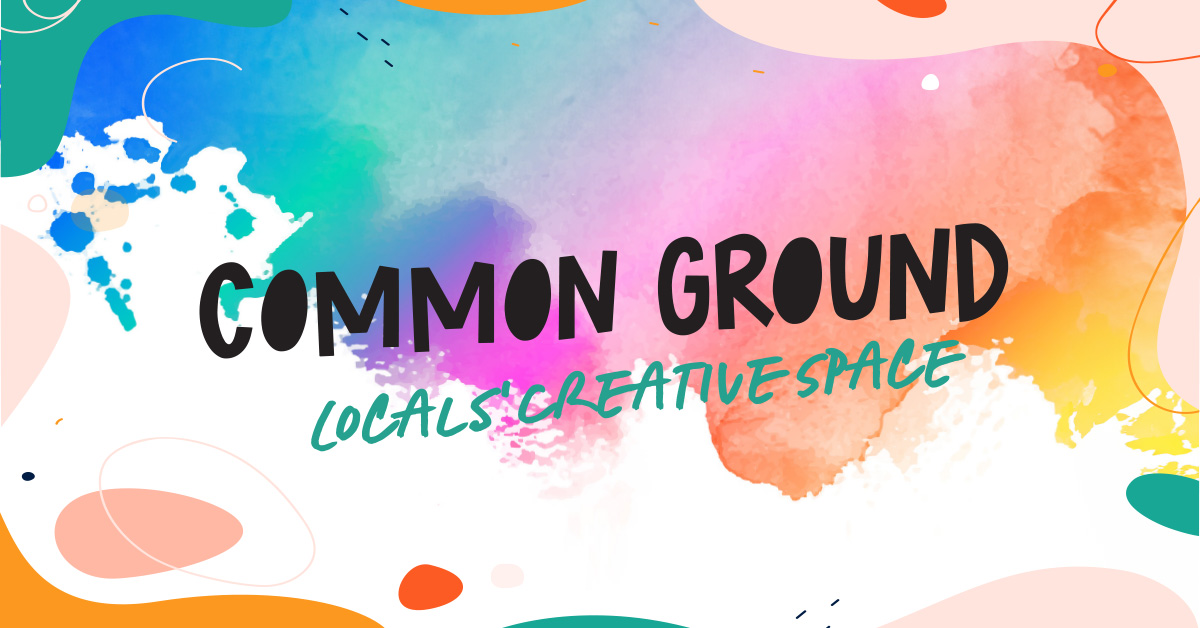
Beyond the Click Series – Is it really ‘your’ algorithmic identity?
Every time you scroll through TikTok, ask Siri to play a song, or search for a cool new recipe on your tablet, you’re adding to what’s called your ‘algorithmic identity’. Basically, it’s a collation of data-points about your life that companies use to figure out what you might like or want. While it might sound helpful, this also has a big impact on your real-world experiences.
Platform capitalism refers to the business model of tech giants like Google, Facebook and Amazon, which generate immense profits by controlling online platforms that people rely on for information, communication and commerce. Nearly everything connected to the internet – from your phone to your smartwatch or even your car’s GPS – plays a part in building your digital identity. This network of connected devices is called the Internet of Things (IoT).
Think about it. Your digital shopping list shows what foods you like to eat, your fitness tracker records your exercise habits, and even your garage door opener logs when you leave the house. Do you work a 9-5 job, are you retired or unemployed, a shift-worker, a parent with school-age kids? Together, these seemingly unrelated bits of information create a picture of your daily life that companies use to guess what products you’ll buy, sometimes even before you know you want them!

All this data is collated, sorted and reconfigured to create a digital profile that shapes the ads you see, the videos suggested to you, and even the prices you’re shown for different items. This process turns ‘you’ from an individual to a ‘dividual’ – a set of data-points that can be sold and traded.
But here’s the big question. Is your digital self deciding what you get to see and do in real life? Let’s break it down: You wake up and check your phone, then watch TV for a bit before work.
You might listen to Spotify on the way there and pay for your lunch with Apple Pay. Each one of these interactions is logged and used to tweak your algorithmic identity. When you decide what new shoes to buy or where to go on holiday, your digital profile has already influenced what options you see.
Take this example from my own life: Imagine you’re planning a holiday with your sister and you realise you’re getting totally different search results for where to stay. That’s exactly what happened to me when we were organising a trip to Rarotonga. We were using the same websites, at the same time, on a video call. But while her results were full of luxury hotels, mine only showed cheap, not necessarily cheerful, rooms. It didn’t matter what site we used – she always got the high-end places, and mine were at the flea-bitten budget end. (The internet gods think I’m just cheap!) What’s worse is that the luxury rooms weren’t even further down the list of choices made available to me – they had actually completely disappeared.

Algorithms had categorised us differently based on our past behaviour, and we saw different options because of it. Imagine how many choices you might be missing out on because your ‘digital self’ has already been boxed in by these algorithms. Decisions are being made for us before we even know it.
Platform capitalist companies shape what you think you should want, because their real power lies in aggregating and monetising vast amounts of user data.
By tracking everything from our browsing habits to our social connections, these companies can build detailed profiles that predict and shape our behaviours, preferences and desires. This data-driven control allows them to influence what we see, buy and believe, thus making us more able to be ‘packaged’ into saleable databases to onsell our info to various other organisations. They are the new gatekeepers of digital life with unprecedented power over markets and societies.
So, next time you find yourself clicking on yet another recommended video or ad, remember that your algorithmic identity is hard at work, shaping how you see reality. The challenge is to be aware of these influences and find ways to take back some control over how your digital self is created.
Stella Pennell is a PhD Sociologist, NZ karate champion, and a curious human being. Watch her episode on the ALTBAYS Table Talk here, and read more of her articles in Coromind here.







